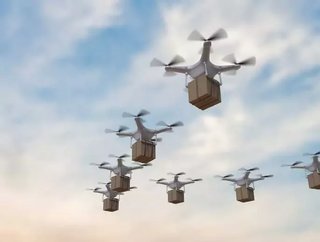What role will drones play in the oncoming technological revolution?

According to Chancellor of the Exchequer Philip Hammond’s autumn budget, ‘the world is on the brink of a technological revolution’, and drones are at the forefront of this.
The drone market simply doesn’t stop growing, and is being used across an increasingly broad spectrum of markets as rules relax, including search and rescue for authorities, tackling fires, to work in agriculture, construction, humanitarian aid, wildlife preservation, and personal security. It is predicted that drones will be a $100bn industry by 2020.
Gartner reported recently that unit drone sales rose 60% last year, and will grow another 39% this year. The research company predicts that the total sales of both consumer and professional drones will reach $11.2bn, up from $6bn in 2016, thus achieving a continued annual growth rate of at least 23%.
Alongside this research, Philip Hammond has announced that the UK government wants to see self-driving cards on the road by 2021 and, as such, will be making world-leading changes to the regulatory framework – including setting out how autonomous vehicles can be tested without a human safety operator.
- RELATED STORIES:
- Defibrillator drones: what are the risks?
- What does DJI's plane avoidance technology mean for the future of drones?
- Most innovative uses for drones
Robert Garbett, Founder and CEO of Drone Major Group, offered the following expert comment:
“As we move into the most exciting era of the modern age, it is easy to imagine skies filled with small flying drones delivering parcels, but the truth is far more likely and far more exciting and the key is the evolution of airspace management. Imagine a future where global airspace is no longer managed in a rigid 'airspace corridor' way purely for the benefit of commercial and military aircraft but in a continuously flexible and dynamic way for the benefit of all.
“An airspace populated with vertical columns used by aircraft making sub space jumps, shifting geo-routes allowing passenger drones to pass safely at any altitude and shifting geo-fences protecting manned routes and high value assets. The sky above us is an untapped sea of air which will have incredible value as the drone industry expands its operations into the future. As data is the new oil, airspace will be the new gold.
“We are some way from taking full control of the airspace but this work is well under way at the European and international levels and so, by the end of the 21st Century/early 22nd Century, this will not only be a reality but be well established, opening the way for a more dynamic use of the airspace and seamless integration with ground operations.
“This, along with developments in 'beyond visual line of sight' (BVLOS) operations and robust identification and licencing models woven into the airspace framework, will allow us to effectively implement driverless flying taxis into our smart cities, increase accident response times through the use of driverless ambulances and make traveling to work a breeze by opening up roof-top drop offs in built up areas. Never mind parcel delivery, the revolution of our airspace to allow the explosion of unmanned transport systems is way more exciting.”
- How Smart Factories are Reshaping the Manufacturing SectorSmart Manufacturing
- Crowe UK: 2024 Manufacturing Outlook Report Explores GrowthProduction & Operations
- Top 10: Chief Manufacturing OfficersProduction & Operations
- Aerospace Insight: Where does Boeing make all of its PlanesProduction & Operations






